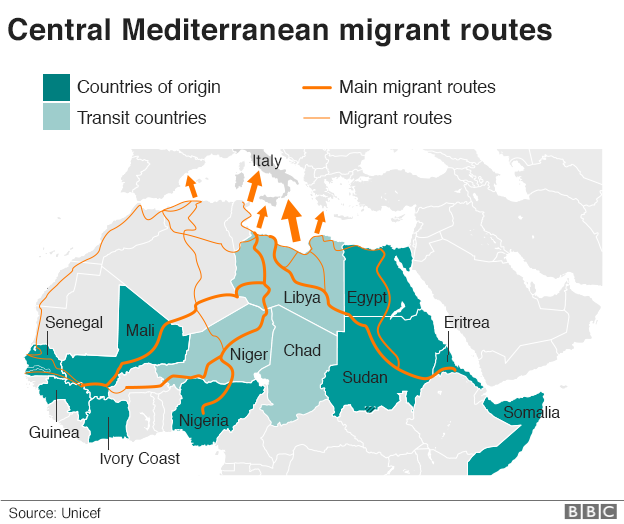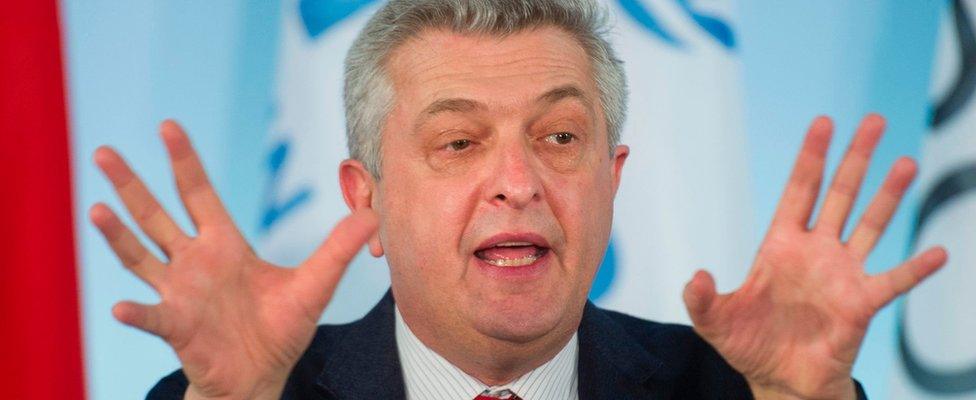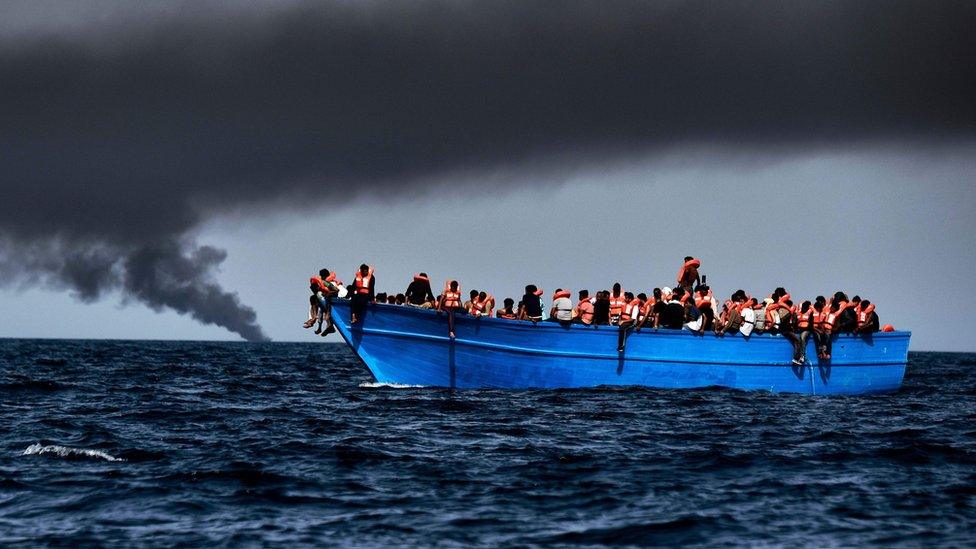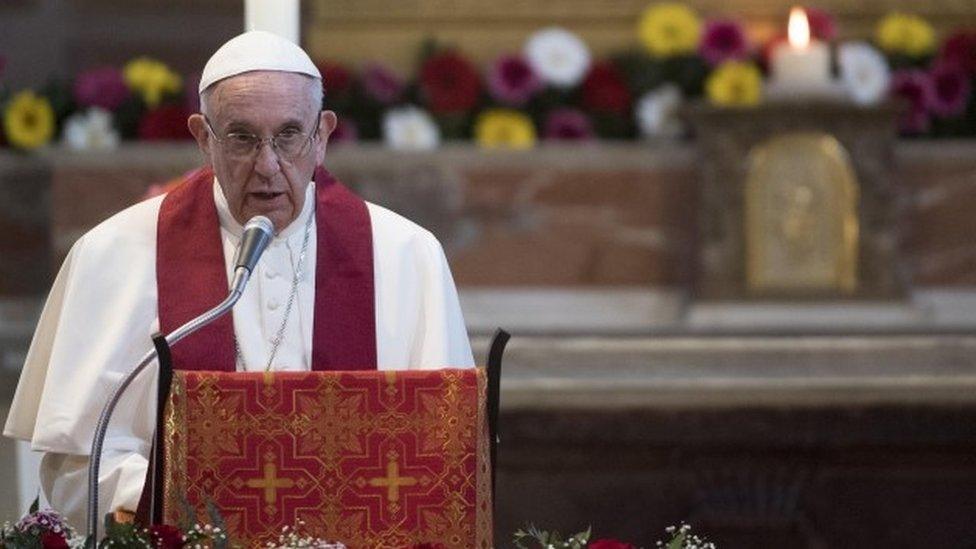Migrant crisis: UN says 250 missing in shipwrecks
- Published
BBC speaks to migrants fleeing Libya
Nearly 250 people are feared drowned after two shipwrecks in the central Mediterranean over the weekend.
Some 163 people are missing after a boat reportedly sank off the Libyan coast on Sunday, the UN said.
Another sank on Friday night and, though some 50 people were rescued and taken to Sicily, about 82 are missing.
The central Mediterranean route for illegal migration to Europe is currently the busiest. It is also one of the most deadly, the UN says.
"Since the beginning of 2017, one person out of 35 has died on the sea journey from Libya to Italy," UN High Commissioner for Refugees Filippo Grandi said two days ago, external.
The latest shipwrecks mean more than 1,300 people have died or disappeared while trying to cross from North Africa to Italy since the beginning of the year, the UN's refugee agency said, external.
More than 43,000 migrants and asylum seekers used the central Mediterranean route to reach Italy in that period, it added.

Mr Grandi praised the efforts of rescue groups including the Italian coast guard, the European Border and Coast Guard Agency (Frontex) and non-governmental organisations, saying they had saved tens of thousands of lives.

"There is an urgent need to address the root causes which lead people to move": Filippo Grandi, UN high commissioner for refugees
But he added: "There is an urgent need to address the root causes which lead people to move, as well as to offer credible alternatives to these dangerous crossings for people in need of international protection, including accessible and safe ways to reach Europe such as family reunification, relocation and resettlement."

Crossing becomes deadlier - Imogen Foulkes, BBC News, Geneva
The numbers crossing the Mediterranean are vastly reduced on 2016: almost 190,000 this time last year, less than 50,000 this year.
But the death toll is the same - more than 1,300 so far, meaning the Mediterranean is becoming deadlier.
Aid agencies say smugglers are using ever flimsier boats and that there is now a form of piracy between smuggling gangs, in which migrants already at sea are robbed of their mobile phones, boat engines are stolen, and the vessels and passengers left to drift.

Three months ago, human rights groups heavily criticised an EU deal with Libya which attempted to reduce the flow of migrants.
The deal provided Libya's UN-backed government with €200m ($215m, £171m), including funding to reinforce its coastguard and block smuggling routes.
How I smuggle people from Nigeria to Europe
But in their criticism, the groups pointed to the continuing instability in Libya and the limited extent of the government's territorial control. They said Libya was not a safe place for migrants.
A note on terminology: The BBC uses the term migrant to refer to all people on the move who have yet to complete the legal process of claiming asylum. This group includes people fleeing war-torn countries such as Syria, who are likely to be granted refugee status, as well as people who are seeking jobs and better lives, who governments are likely to rule are economic migrants.
- Published23 April 2017

- Published23 April 2017
